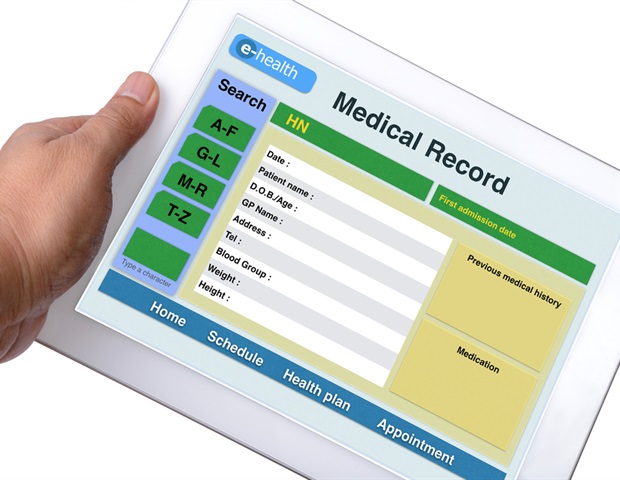
A machine learning-based mannequin that allows medical establishments to foretell the mortality danger for particular person cardiac surgical procedure sufferers has been developed by a Mount Sinai analysis staff, offering a major efficiency benefit over present population-derived fashions.
The brand new data-driven algorithm, constructed on troves of digital well being information (EHR), is the primary institution-specific mannequin for assessing a cardiac affected person’s danger previous to surgical procedure, thus permitting well being care suppliers to pursue the perfect plan of action for that particular person. The staff’s work was described in a examine revealed in The Journal of Thoracic and Cardiovascular Surgical procedure (JTCVS) Open.
The usual-of-care danger fashions used in the present day are restricted by their applicability to particular kinds of surgical procedures, leaving out important numbers of sufferers present process complicated or mixture procedures for which no fashions exist. Our staff rigorously mixed digital well being document knowledge and machine studying strategies to show for the primary time how particular person establishments can construct their very own danger fashions for post-cardiac surgical procedure mortality.”
Ravi Iyengar, PhD, Senior Creator, the Dorothy H. and Lewis Rosenstiel Professor of Pharmacological Sciences on the Icahn Faculty of Medication at Mount Sinai, and Director of the Mount Sinai Institute for Methods Biomedicine
Prediction fashions primarily based on machine studying algorithms have been generated throughout various fields of drugs, and a few have proven improved outcomes over their standard-of-care counterparts. In cardiac surgical procedure, The Society of Thoracic Surgeons (STS) danger scores are thought-about the gold normal, and are routinely used to evaluate a cardiac surgical procedure affected person’s procedural danger. Whereas they proceed to supply essential benchmarks for hospitals to judge and enhance their efficiency, they’re derived from population-level knowledge and due to this fact could fail to precisely predict danger for particular sufferers with sophisticated pathologies who require tailor-made preoperative evaluations and complicated surgical procedures.
Cardiovascular surgeons and knowledge science specialists at The Mount Sinai Hospital, supervised by co-senior writer Gaurav Pandey, PhD, Affiliate Professor of Genetics and Genomic Sciences at Icahn Mount Sinai, hypothesized that machine learning-based fashions utilizing EHR knowledge from their very own establishment might supply an efficient answer. In order that they created a rigorous machine studying framework utilizing routinely collected EHR knowledge to develop a danger prediction mannequin for postsurgical mortality that’s each personalised to the affected person and particular to the hospital-;implicitly incorporating essential details about Mount Sinai’s affected person inhabitants, similar to demographics, socioeconomic components, and well being traits. That is in distinction to population-derived fashions like STS, that are primarily based on knowledge from various well being programs in numerous elements of the nation. Additional driving the efficiency of this technique was a extremely efficient open-source prediction algorithm often known as XGBoost, which builds an ensemble of determination bushes by progressively specializing in harder-to-predict subsets of coaching knowledge.
Main the examine was co-corresponding writer Aaron J Weiss, MD, PhD, previously a cardiothoracic surgical procedure resident at The Mount Sinai Hospital and a scientific analysis PhD graduate from Icahn Mount Sinai, who’s now at Cleveland Clinic. Arjun Yadaw, PhD, Adjunct Assistant Professor of Pharmacological Sciences at Icahn Mount Sinai, and at the moment a Senior Knowledge Scientist on the Nationwide Middle for Advancing Translational Science, a part of the Nationwide Institutes of Well being (NIH NCATS), additionally co-led the work. These researchers used XGBoost to mannequin 6,392 cardiac surgical procedures carried out at The Mount Sinai Hospital from 2011 to 2016, together with coronary heart valve procedures; coronary artery bypass graft; aortic resection, alternative, or anastomosis; and reoperative cardiac surgical procedures, which have been proven to appreciably enhance mortality danger. The staff then in contrast the efficiency of its mannequin to STS fashions for a similar affected person units.
The examine confirmed that the XGBoost mannequin outperformed STS danger scores for mortality in all generally carried out classes of cardiac surgical procedure for which STS scores have been designed. Prediction efficiency of the XGBoost mannequin throughout all surgical procedure sorts was additionally excessive, demonstrating the potential of machine studying and EHR knowledge for constructing efficient institution-specific fashions.
“Correct prediction of postsurgical mortality is essential to make sure the perfect outcomes for cardiac surgical procedure sufferers, and our examine reveals that institution-specific fashions could also be preferable to the scientific normal primarily based on inhabitants knowledge,” emphasizes Dr. Pandey. “Simply as importantly, we have demonstrated that it is sensible for well being care establishments to develop their very own predictive fashions by means of subtle machine studying algorithms to exchange or complement the established STS template.”
This examine was funded by grants from the Nationwide Institutes of Well being.
Supply: